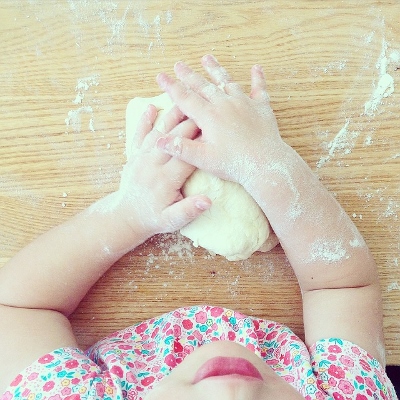 As a parent, there’s nothing more frustrating than when your preschooler suddenly erupts into a temper tantrum filled with shrieking, crying, kicking and throwing himself onto the ground. You’re likely to feel out of control, angry and embarrassed, especially if you’re in public. Though the “tantrum phase” is a normal part of your child’s emotional development from the ages of 18 months to four, it may seem like an eternity, especially during the peak years when your child is two to three. You can nip your child’s temper tantrums in the bud; however, you need to learn what triggers them and some effective parenting techniques to cope with them.
As a parent, there’s nothing more frustrating than when your preschooler suddenly erupts into a temper tantrum filled with shrieking, crying, kicking and throwing himself onto the ground. You’re likely to feel out of control, angry and embarrassed, especially if you’re in public. Though the “tantrum phase” is a normal part of your child’s emotional development from the ages of 18 months to four, it may seem like an eternity, especially during the peak years when your child is two to three. You can nip your child’s temper tantrums in the bud; however, you need to learn what triggers them and some effective parenting techniques to cope with them.
Tantrums can occur when your child feels hungry, tired, frustrated, bored or afraid. The second he starts acting up, you need to figure out which type of tantrum you’re dealing with. There’s the emotional breakdown in which your child is overwhelmed by his feelings of sadness, fear, anger or hurt. The situation-caused tantrum is due to your preschooler’s not getting something he wants, his being forced to sit still for too long, or his feeling tired or hungry. The mock tantrum is a form of manipulative behavior that your child exhibits if he knows you’re likely to give in to his bad behavior.
If your child is acting out because of an emotional breakdown, try to be sympathetic and comforting because your child’s having a tough time dealing with his feelings, which are overwhelming him. He doesn’t know how to cope with them yet and his verbal skills are too limited to help him express his emotions with words.
If your preschooler is experiencing a situation-caused tantrum, ask yourself if you’ve put your child in a situation that’s unreasonable for his age — demanding a preschooler to sit still for an hour at church or at a wedding is asking for trouble as is expecting your child to stay up long after his bedtime or going without food for long periods of time. The best way to deal with this type of tantrum is to avoid putting your child in the situation in the first place: Bring a coloring book and crayons or a handheld gaming system if you’re going on an activity where your child will have to sit still for a long time. Pack a snack for your child if there won’t be any opportunities to eat. Finally, recognize that your child needs to sleep when it’s nap time or bedtime, so try not to schedule activities during those times.
When your preschooler’s having a mock tantrum and flailing about, hoping you’ll do anything so that he’ll stop his performance, don’t give in! You’re child’s doing everything he can to push your buttons and if you give him what he wants, you’ll be seeing many more of these emotional blackmail attempts for years to come. You need to take a deep breath, remain calm, stay in control and be firm.










